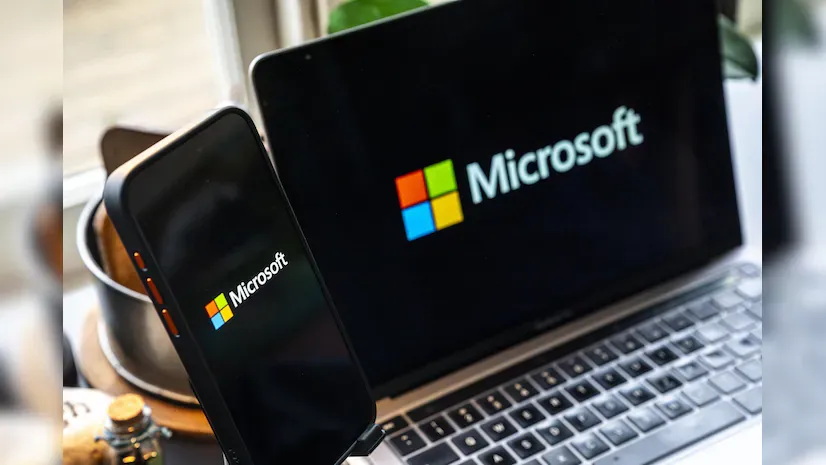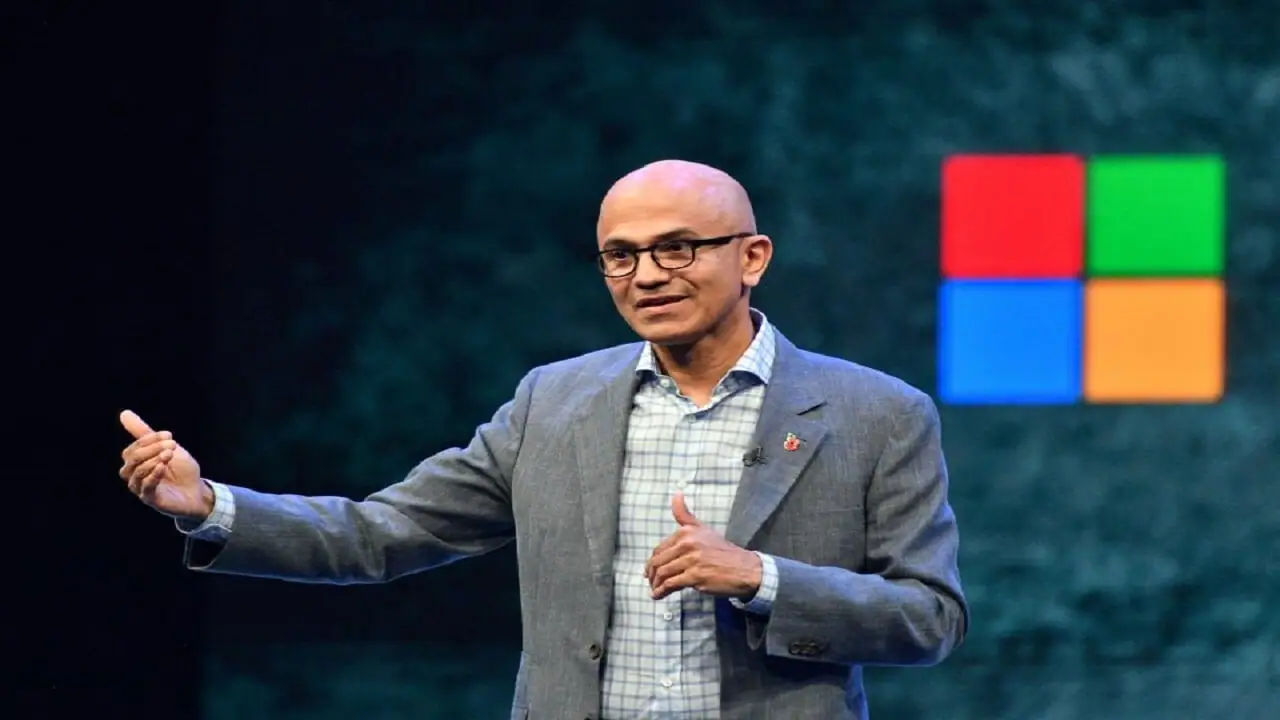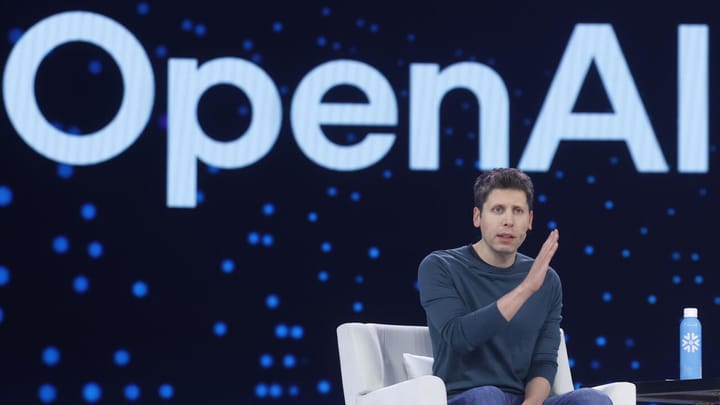Is AI Making Us Smarter or Dumber? Microsoft’s $80 Billion Bet and the Unexpected Consequences

Microsoft Corporation has put itself at the leading edge of artificial intelligence (AI) growth with a whopping $80 billion spend earmarked for this year. This indicates its desire to be a strong player in the AI market. Nonetheless, the firm recently issued a research report stating that generative AI technology, including ChatGPT, is causing people's critical thinking ability to degrade. This paradox has fundamental questions regarding the position of AI in the workplace and whether it really adds value to human ability or just substitutes for it.
The Findings: AI and the Vanishing Act of Critical Thinking
Microsoft's research, carried out with researchers at Carnegie Mellon University, questioned 319 knowledge workers who use AI to accomplish many different tasks. Participants were experts like teachers creating images using DALL-E 2 and commodities traders applying ChatGPT for developing strategy.
The findings were grim:
The more users depended on AI, the fewer they exercised skills like writing, analysis, and evaluation.
Most users experienced loss of confidence in what they could do, choosing to endorse AI-produced content uncritically.
Time constraints amplified the situation, with employees resorting to AI to fulfill targets and skipping independent checks on output.
This trend raises questions of whether AI is just supplementing human intelligence or replacing core thinking processes, contributing to intellectual laziness.
The Role of AI in Shaping Professional Work
A similar study by AI firm Anthropic revealed the most prevalent ability exhibited by its chatbot, Claude, as critical thinking. Ironically, when AI is naturally good at it, its end-users appear to be losing touch with the same. This tide suggests a time when professionals are going to trade places from creating knowledge to serving as supervisors over AI-created output.
OpenAI's latest Deep Research model, costing $200 a month, is an example of this trend. It can perform research independently, examine images, search PDFs, and generate elaborate reports with citations. As Deutsche Bank's research analyst Adrian Cox pointed out, cognitive work is changing at breakneck speed. Humans will no longer be valued for how well they can process information but for how well they can frame the right questions to ask AI and interpret its responses.
Historical Parallels: Are We Really Becoming Dumber?
Technological innovations have been greeted long ago with worries of loss of mind:
Socrates was afraid that writing would undermine memory.
Calculators were supposed to reduce mathematical abilities.
GPS navigation was going to leave people unable to navigate without computer help.
While they have partially proven true—numerous people now find themselves deficient in mental calculations or map navigation without devices—humans have long accommodated by reprioritizing brain capacity in other fields. Yet AI has its extent: it pervades every-day choices and logical judgment, much more deeply ingrained within professional and personal intelligence than are memorization or way-finding.
Microsoft's Strategic Considerations
Considering it has invested heavily in AI, why would Microsoft bring attention to these results? The reason is that the company must know how AI impacts knowledge workers in order to improve its products. According to the authors of the study, not taking into account the effects of AI may result in the creation of AI tools that are not fulfilling actual user needs.
A particularly alarming revelation from the study was that users who were more confident in AI’s capabilities were less likely to verify its output. Given AI’s well-documented tendency to generate misinformation (also known as hallucinations), this could lead to a decline in work quality. If companies notice a drop in employee performance, they might blame AI tools rather than individual workers, potentially harming Microsoft’s reputation and AI adoption rates.
The Workplace Future of AI
Microsoft and other technology majors have promoted AI as an ability to enhance the human intellect rather than substitute for it. It is now in designing AI to strengthen, rather than undermine, human mental processes. Some such solutions might include:
AI frameworks that remind people to critically review generated material prior to acceptance.
Software that urges original thinking in the form of user input versus passive adoption.
AI systems that alert uncertain outputs, requiring further checking.
Without such precautions, companies will end up with more effective but mentally uncreative employees—able to deliver huge amounts of work but less capable of spotting mistakes or innovating.
FAQs
Why is Microsoft spending $80 billion on AI even after acknowledging its disadvantages?
Microsoft views AI as the future of technology and business. In spite of fears about cognitive loss, the company strives to improve AI tools so they are more useful than harmful.

What effect does AI have on critical thinking?
Research indicates that the more individuals use AI for such activities as writing and analysis, the less they engage in them themselves. Over time, this can weaken their capacity to think critically and autonomously.
Can AI prevent skill atrophy?
Yes. Developers can design AI tools that stimulate human contribution, necessitate AI-generated content verification, and challenge users to think critically about the presented information.
Is the decline in critical thinking skills a recent development brought about by AI?
Not quite. The same issues were raised with writing, calculators, and GPS. But AI is different in that it impacts a wider set of cognitive abilities, such as reasoning and decision-making.
What can businesses do to counteract the negative impact of AI?
Businesses can train workers to use AI responsibly, stress the value of verification, and implement AI solutions that augment instead of substitute critical thinking abilities.
Microsoft’s revelation that AI is making workers less adept at critical thinking is a wake-up call for both tech developers and businesses. While AI offers unparalleled efficiency, its unchecked use risks eroding essential cognitive skills. Moving forward, the challenge will be to strike a balance between leveraging AI’s capabilities and preserving human intelligence. Only then can AI truly serve as a tool for augmentation rather than replacement.



